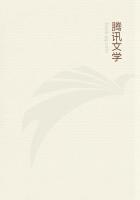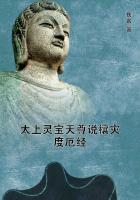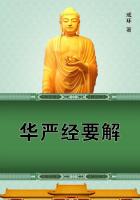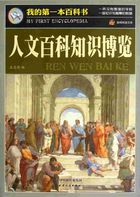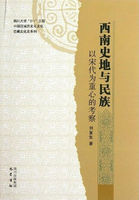The labourer has thought fit to correct that decision. For the present he thinks that he has a right to 2s. 3d. a day in winter,and 2s. 6d. in summer. And our only hope seems to be, that the promise of such wages will bribe him into quiet. But whocan doubt that he will measure his rights by his wishes, or that his wishes will extend with the prospect of theirgratification? The present tide may not complete the inundation, but it will be a dreadful error if we mistake the ebb for apermanent receding of the waters. A breach has been made in the seawall, and with every succeeding irruption they willswell higher and spread more widely. What we are suffering is nothing to what we have to expect. Next year, perhaps, thelabourer will think it unjust that he should have less than 4s. a day in winter, and 5s. in summer; -- and woe to the tyrantswho deny him his right!
It is true, that such a right could not be permanently enforced; -- it is true, that if the labourer burns the corn-ricks in whichhis subsistence for the current year is stored -- if he consumes in idleness or in riot the time and the exertions on which nextyear's harvest depends -- if he wastes in extravagant wages, or drives to foreign countries, the capital that is to assist andrender productive his labour, he will be the greatest sufferer in the common ruin. Those who have property may escapewith a portion of it to some country in which their rights will be protected; but the labourer must remain to enjoy his ownworks--to feel that the real rewards for plunder and devastation are want and disease.
But have the consequences of the present. system ever been explained to the labourer? Is not his right to good wages. re-echoed from all parts of the country Is he not told -- 'Dwell in the land, and verily thou shall be fed?' Does not theHonourable Member who has affixed this motto to his work, assume, that the fund out of which the labourer is to be fed ispractically inexhaustible? And can words more strongly imply that his sufferings arise from the injustice of his superiors?
Have not even magistrates and landlords recommended the destruction, or, what is the same, both in principle aud effect,the disuse of the very machines of which the object is to render labour more efficient in the production of the articlesconsumed by the labourer -- in the production of that very fund on the extent of which, compared with the number to. bemaintained, the amount of wages depends? And is there any real difference between this conduct and the burning of arick-yard? Threshing-machines are the present objects of hostility, ploughs will be the next; spades will then be found todiminish employment; and when it has been made penal to give advantage to labour by any tool or instrument Whatever,the last step must be to prohibit the use of the right-hand.
Have sufficient pains been taken even to expose the absurdity of what appears so obvious to the populace -- that thelandlords ought to reduce their rents and the clergy their tithe, and then the farmer would give better wages? If the farmerhad his land for nothing, still it would not be his interest to give any man more wages for a day's work than his day's workwas worth. He could .better afford it, no doubt, to be paid as a tax; but why should the farmer pay that tax more than thephysician or the shopkeeper? If the farmer is to employ, at this advanced rate of wages, only whom he chooses, the distresswill be increased, since he wil! employ only that smaller number whose labour is worth their increased pay. If he is toemploy a certain proportion of the labourers, however numerous, in his parish, he is, in fact, to pay rent and tithes asbefore, with this difference only, that they are to be paid to paupers, instead of to the landlord and the parson; and that thepayment is not a fixed but an indefinite sum, and a sum which must every year increase. in an accelerated ratio, as theincrease of population rushes to fill up this new vacuum, till rent, tithes, profit, and capital, are all eaten up, and pauperismproduces what may be called its natural effects -- for they are the effects which, if unchecked, it must ultimatelyproduce--famine, pestilence, and civil war.
That this country can preserve its prosperity, or even its social existence, if the state of feeling which I have describedbecomes universal among the. lower classes,. I think no one will be bold enough to maintain. That it is extensivelyprevalent, and that, under the present administration of the poor-laws, it will, at no remote period, become universal in thesouthern districts, appears to me to be equally clear. But who, in the present state of those districts, will venture to carryinto execution a real and effectual alteration of the poor-laws? Remove, by emigration, the pauperism that now oppressesthose districts, and such an alteration, though it may remain difficult, will cease to be impracticable.
Again, the corn-laws, by their tendency to raise the price of subsistence, by the ruin which they have inflicted on theinternal corn-trade, and the stimulus which they have given to the increase of the agricultural population, have withoutdoubt been amongst the causes of the present distress; and if, while the population of England and Wales continues toincrease at the rate of 500 persons a day, the introduction of foreign corn is subject, under ordinary prices, to a prohibitiveduty, those laws will become every day more mischievous, and less remediable. But the repeal of those laws, howevergradual (and only a gradual repeal can be thought of), would, under the present pressure of pauperism, tend to aggravatethe agricultural distress. Lighten that pressure, and we may gradually revert to the only safe system--the system of freedom.
This observation, indeed, is only one example of a general rule. Nature has decreed that the road to good shall be throughevil -- that no improvement shall take place in which the general advantage shall not be accompanied by partial suffering.

